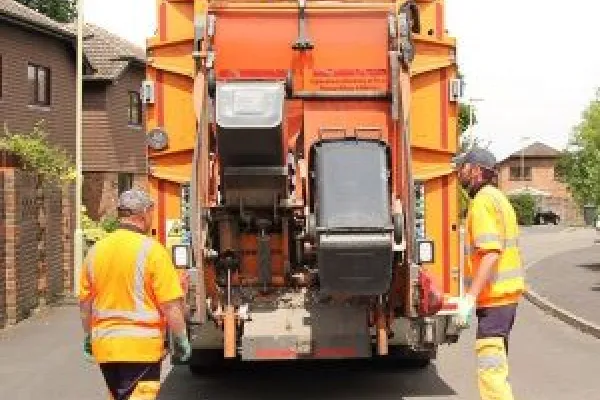
Over 80 tonnes of carbon emissions have been saved in just three months after Hart District Council introduced low-carbon biofuel for bin trucks.
Since April, Hart’s waste and recycling collection vehicles have been swapping to hydrogenated vegetable oil as an alternative fuel. This fuel now accounts for over 80% of the fuel usage across the waste and recycling fleet and has up to 98% lower emissions than diesel, according to government conversion factors.
80 tonnes of carbon emissions is the equivalent of the emissions generated driving over 280,000 miles in an average petrol-powered car.
After declaring a climate emergency in 2021, this advancement is part of the Council’s work to tackle climate change and become a carbon-neutral authority by 2035 and district by 2040.
Councillor Richard Quarterman, Portfolio Holder for Corporate Services and Climate Change, said: “Our waste and recycling service is a key function and it’s fantastic we’ve been able to find a local way to tackle climate change while still delivering a great service.
“We expect to continue to make significant reductions in our emissions from our bin trucks to help protect our district and bring us closer to our goal of carbon neutrality.”
More information about the Council’s action on climate change is at www.hart.gov.uk/environment/climate-change
Notes: The council uses the UK Government’s official conversion factors to calculate the approximate carbon savings from using hydrogenated vegetable oil as a replacement fuel for diesel in its operational vehicles.
The government conversion factors indicate a 98% difference in the greenhouse gas emissions of diesel (average biofuel blend) compared to biodiesel hydrogenated vegetable oil (HVO).
More information is at www.gov.uk/government/collections/government-conversion-factors-for-company-reporting.